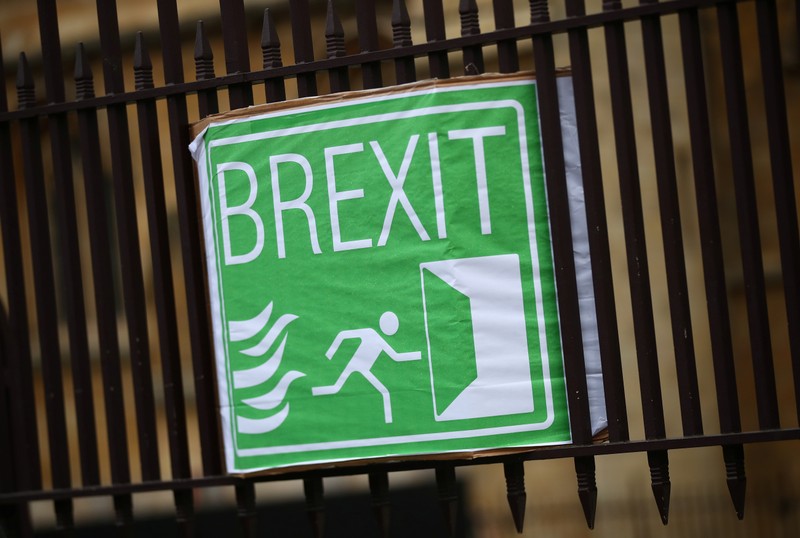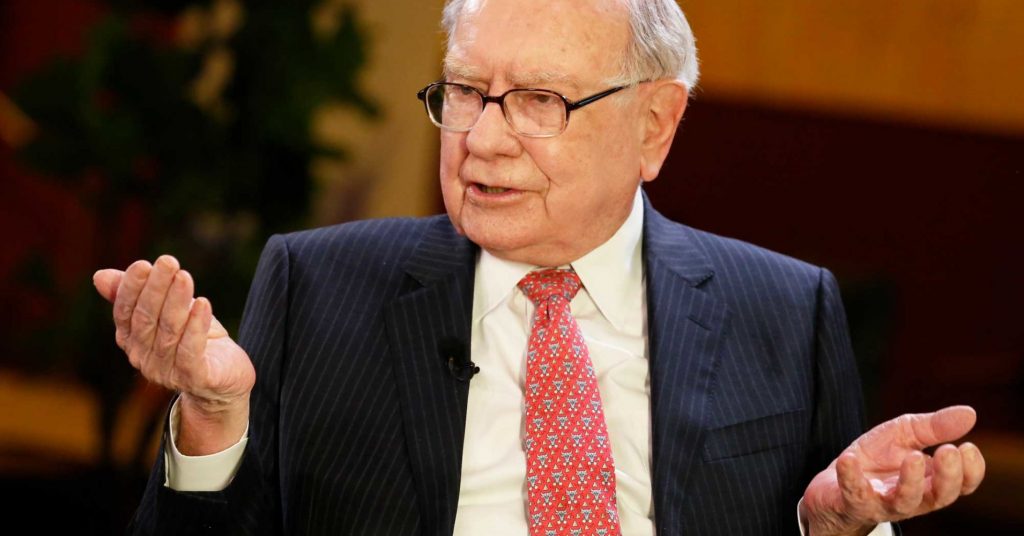
A pro-brexit sign is seen outside the Houses of Parliament, in Westminster, in London, Britain January 29, 2019. REUTERS/Hannah Mckay
February 25, 2019
By Huw Jones and David Milliken
LONDON (Reuters) – Britain and the United States agreed on Monday a long-term pact to ensure that the $2 trillion a day transatlantic market in derivatives will not be disrupted by any type of Brexit.
U.S. Commodity Futures Trading Commission Chairman Christopher Giancarlo said the agreement underlined London’s status as a global financial center, now and “for a long time to come”.
Derivatives are widely used by companies to hedge themselves against unexpected moves in borrowing costs, currencies or raw materials prices.
“Market participants can be confident that the clearing and trading of derivatives between the UK and U.S. will maintain the high standards of today when the UK leaves the EU,” Bank of England Governor Mark Carney told a news conference.
Currently, derivatives trading in Britain conforms to rules written by the European Union, the trading bloc that the United Kingdom is due to leave on March 29.
U.S. and UK regulators told reporters on Monday that the trading and clearing of derivatives transactions in London and New York that account for 80 percent of the world’s off-exchange traded contracts would continue under a similar set of rules once Brexit takes place.
U.S. and UK regulators will allow trading and clearing houses for derivatives to operate on each other’s markets.
With just over a month to go, it is still unclear if Britain will leave the EU with a transition agreement to minimize economic disruption or crash out with no deal.
The steps announced by the Bank of England, the Financial Conduct Authority and the U.S. Commodity Futures Trading Commission on Monday aim to reassure markets that derivatives will not be disrupted even if there is a “hard” Brexit.
CFTC’s Giancarlo said the measures provide a “bridge over Brexit” through a durable regulatory framework which the thriving transatlantic derivatives market may continue and endure.
“It’s about continuity. They will come into effect whatever form Brexit takes, and for a long duration,” Giancarlo said.
BIG SIGNAL
The transatlantic deal covers both trading and clearing of derivatives by companies like London Stock Exchange’s LCH clearing arm, CME, and ICE.
“It’s a big signal that we intend this cooperation to continue,” said Andrew Bailey, chief executive of Britain’s Financial Conduct Authority.
Scott O’Malia, head of ISDA, the global derivatives industry body, said the pact would help ensure the safe and efficient functioning of the market.
The EU has also taken steps to ensure that a no-deal Brexit would freeze cross-border derivatives clearing, given that LCH dominates clearing of euro-denominated interest rate swaps. But a longer-term relationship has yet to be worked out.
The U.S. measures are permanent and also cover trading in derivatives, while the time-limited EU step covers clearing only.
The EU is meanwhile toughening up requirements for foreign clearing houses that want to serve EU customers by insisting it could tell them what to do in a crisis, a step Britain and the United States are resisting.
This is widely viewed as an attempt to force some derivatives business to move to the EU.
Carney said splitting the market could bump up costs for users by 20 billion euros.
The London derivatives market could not be readily replicated anywhere else, Giancarlo said. “London is and will remain a key global center for derivatives trading and clearing for a long time to come.”
(Reporting by Huw Jones and David Milliken, Editing by Catherine Evans)

